You're the proud owner of a beautiful acoustic piano, but you've got a lot of questions about maintaining it. Here's a guide to all you need to know about piano tuning! Let's explore how often it needs to be tuned, approximately how much it costs, and more important information you need to know.
Want to take the best care of your piano? Get more piano maintenance tips and learn how to clean the keys and finish.
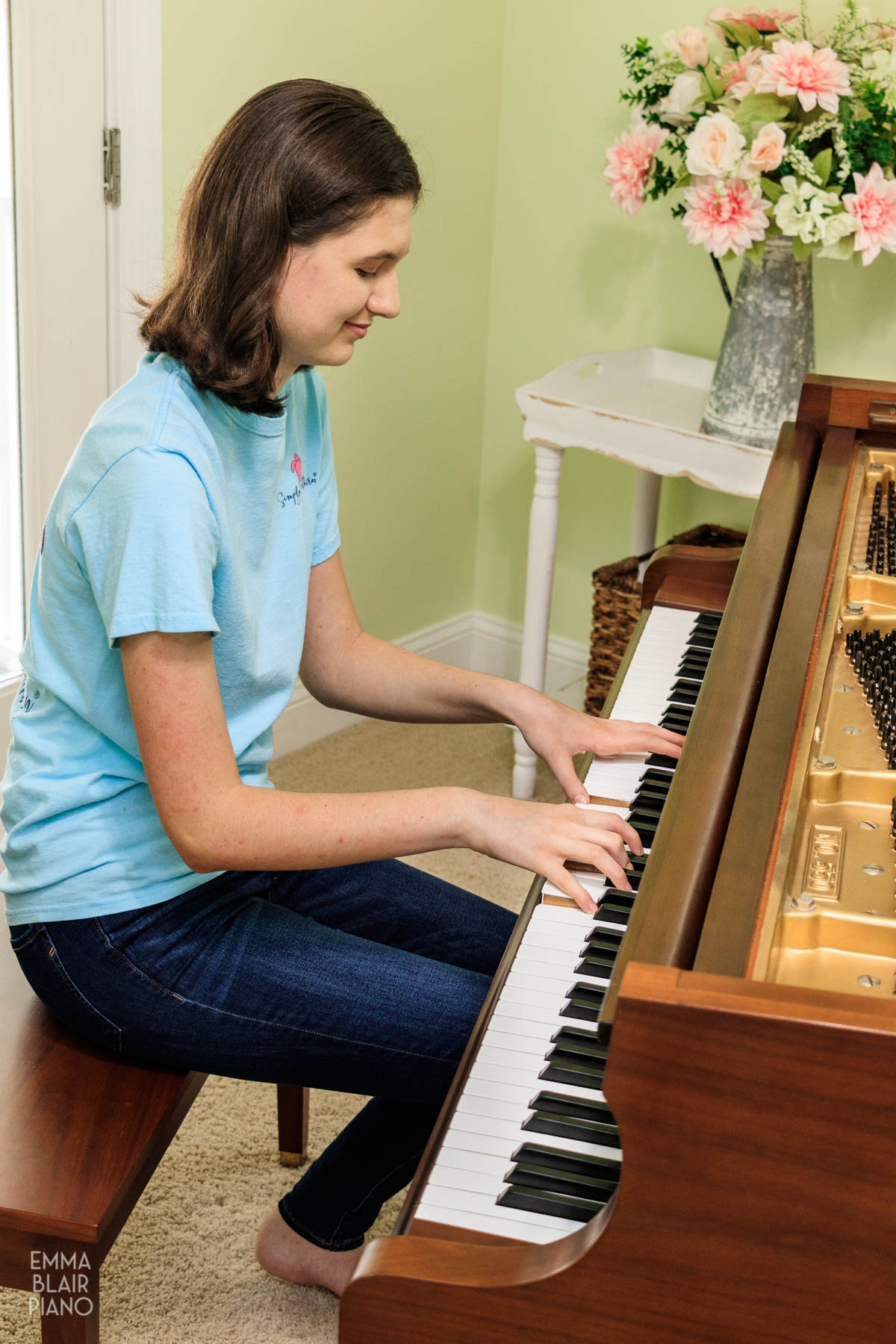
Jump to:
What Is Tuning?
Piano tuning is adjusting the tension of the strings so that the notes have the correct pitch. Over time, piano strings loosen and the pitch drops (goes flat). Twisting the tuning pins on the pinblock with a special wrench tightens the strings, raising their pitch to the correct frequency.
Tuning ensures your piano is playing the notes at the correct frequencies, which creates a much more pleasant sound. Humidity fluctuations throughout the year will cause the wooden components in the instrument to swell or shrink, which in turn can cause the piano to go out of tune.
This refers to the sound frequency of the A above middle C, which is used to calibrate the tuning of pianos, violins, and other musical instruments. The 440 means that the A has a vibration frequency of 440 Hz, and is often called "concert pitch." A properly tuned piano should have the A4 pitch (the 4th A on the keyboard) vibrating at 440 Hz.
Most piano tunings will take between 1 hour and 1 ½ hours. If small repairs to your instrument are needed, it may take up to 2 hours for the technician to finish.
Yes, in most cases a piano will definitely need to be tuned after moving, as it will have been exposed to many variations in humidity and possibly some hard knocks, causing the strings to change their tension. Let the piano acclimate to its new environment for a month before getting it tuned, as it will hold its tune better.
Yes, any piano can be tuned after years of no use, as long as it is working condition. Keep in mind, however, that a severely out-of-tune piano will have gotten used to the lowered string tension, and the strings not stay at the correct tension for a longer period of time until it has had several tunings.
Although anyone can be trained to learn piano tuning, it's best to hire a professional piano technician to do this important maintenance on your instrument. Unless you really know what you're doing, you can do more harm than good! Technicians often have professional designations and have many years of experience tuning pianos.
The most important tool in piano tuning is called the tuning hammer (also called a lever), which is a specialized wrench that helps the tuner turn the tuning pins, thereby adjusting the string pitch. Most tuners will also use an electronic app or device to check that the piano is playing the proper pitches, but in the past a tuning fork was used for this purpose. Rubber mutes and felt temperament strips are used to silence certain strings during the tuning process.
According to Berklee, piano technicians can be trained through an apprenticeship or a training program, or can be self-taught. One can learn online using courses such as Randy Potter School of Piano Technology and with educational videos from Howard Piano Industries YouTube channel. However, it can take two to five years to become a professional piano technician.
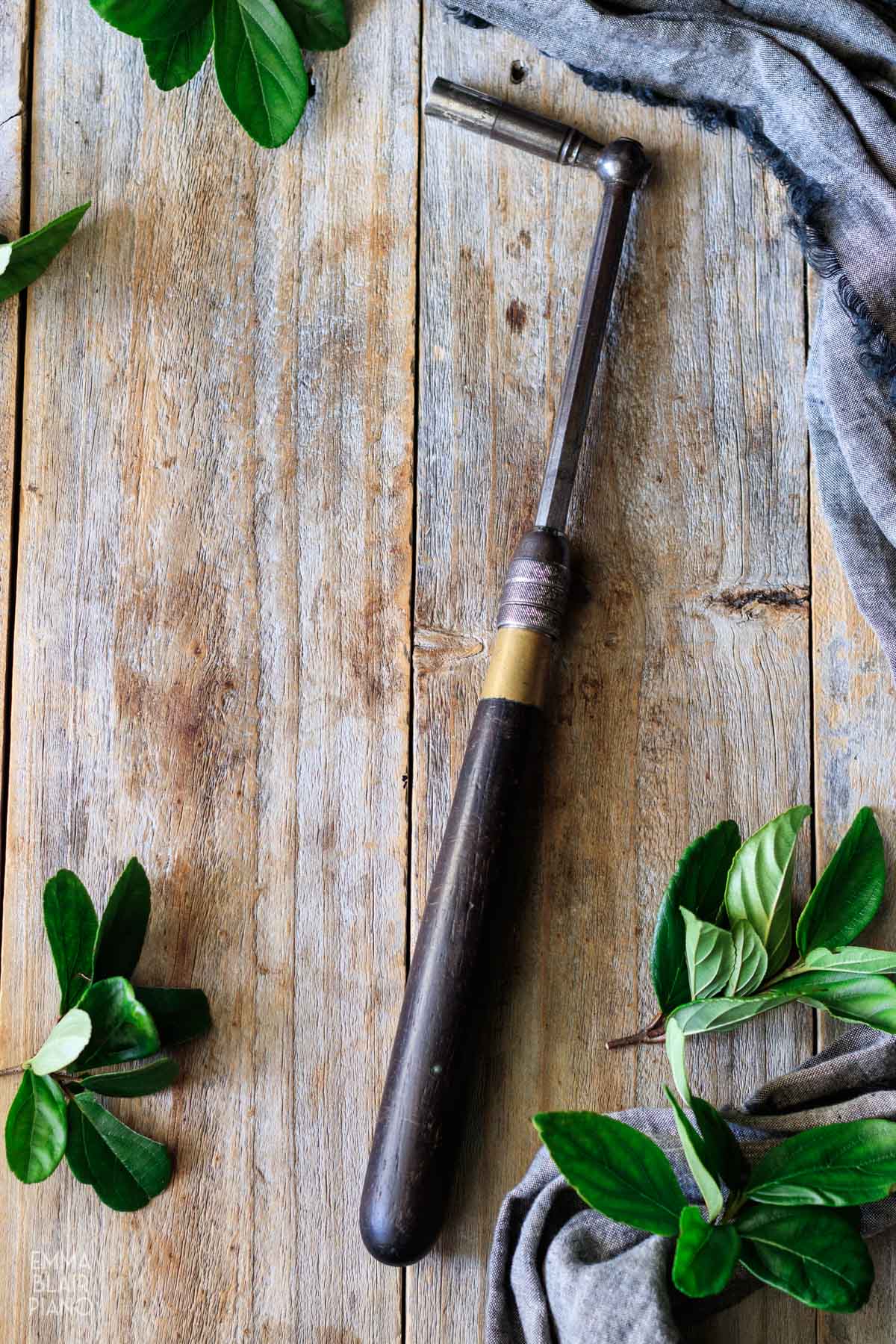
How Often?
How often should your piano be tuned?
- It depends! The frequency of tunings depends upon the age of the piano, where it is stored, and how often it is played.
- For brand new pianos, four times a year is recommended by most piano manufacturers.
- For pianos older than one year, twice a year is best. Have one tuning a month after the heat is turned on in the fall, and another tuning a month after the air conditioning is turned on in the summer.
- For recording studios, concert halls, universities, and other venues where the piano is played for hours every day, tunings may be needed once a week or even every day (especially for recordings, where absolute accuracy is needed).
How to Tell If Your Piano Needs Tuning
If your piano shows one of the following characteristics, it's time to call a tuner!
- Notes not at the proper pitch (Don't wait until the piano sounds bad. If you don't have perfect pitch, use a tuning fork or a digital app to tell if the piano is out of tune.)
- Buzzing or twanging when the hammer hits the strings
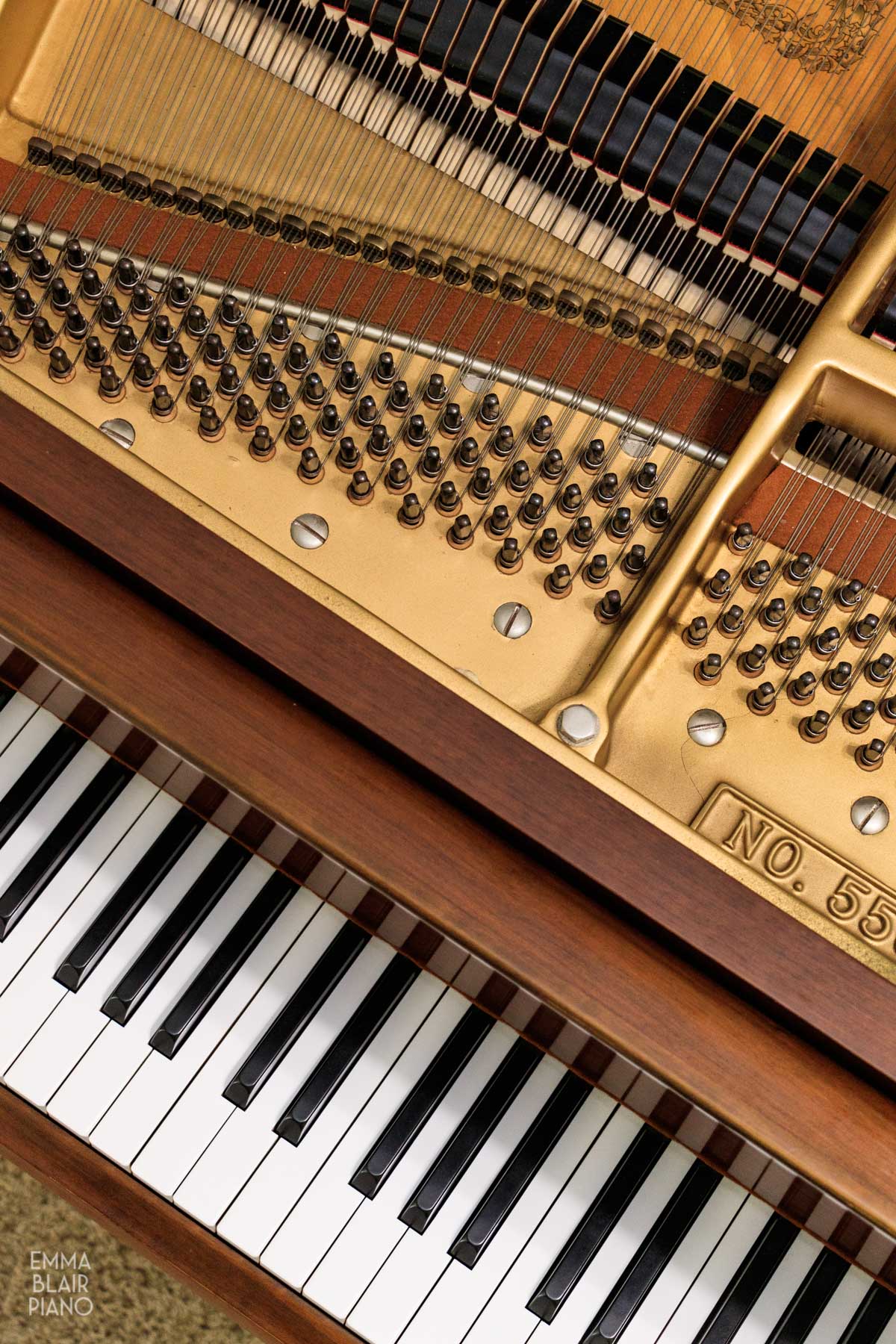
Finding a Tuner
Don't know of any piano tuners or technicians in your area? Here are some ways you can find them!
- Ask for recommendations. Music stores, piano teachers, churches, or universities will probably know of local tuners and technicians and can give you a good recommendation.
- Look online. Do a quick Google search for "piano tuners near me," and you'll probably see quite a few results. Read reviews for each tuner and visit their social media pages or website to get more information about them.
- Search on the Piano Technicians Guild website. If you're looking for a certified technician or tuner, using the PTG website is a great place to start. Simply enter your zip code or postal code to find qualified technicians near you.
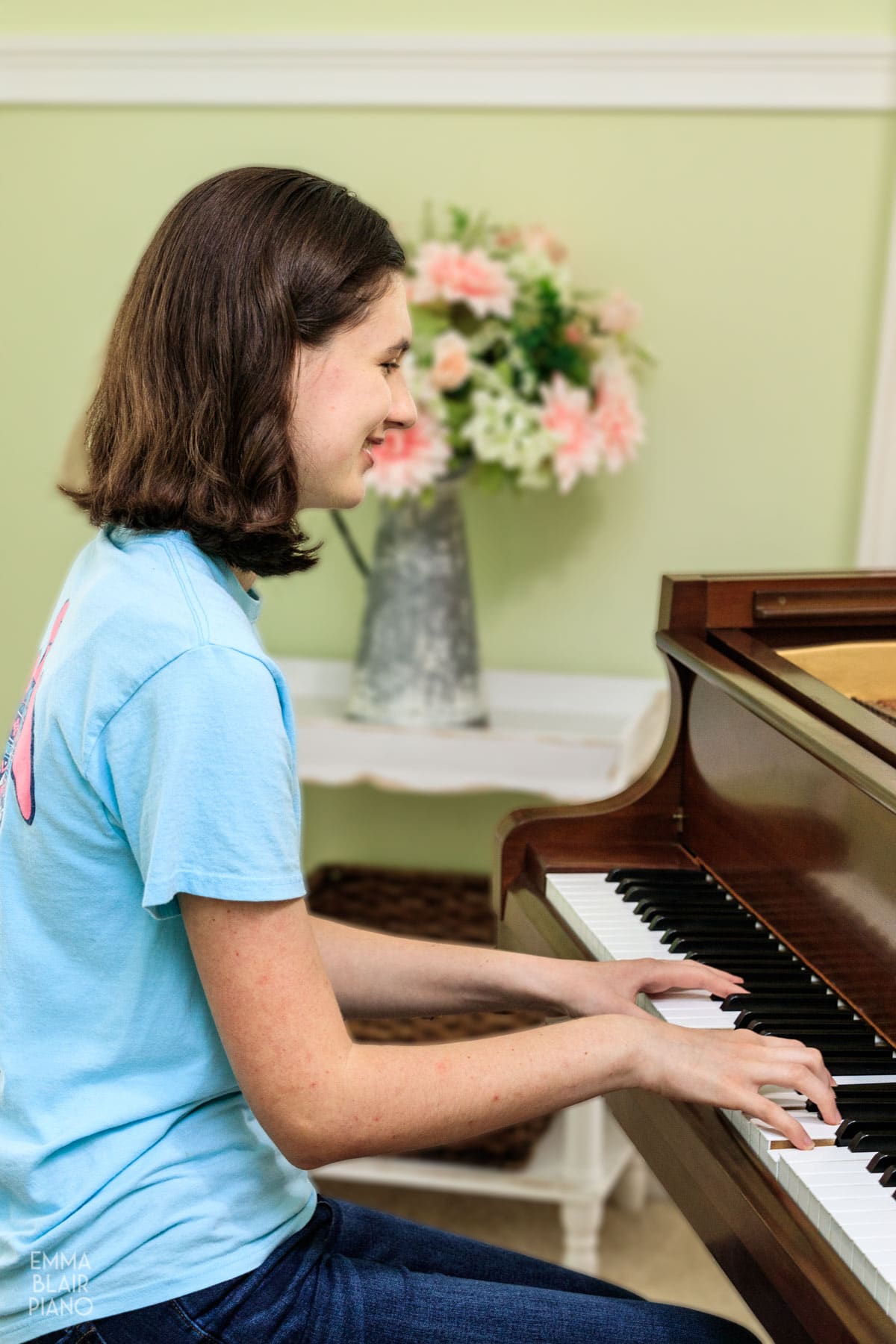
Cost
How much does a tuning cost?
Most piano tuners will charge $100-$150 per tuning, but the amount can go up to $200 depending upon the tuner's expertise. Remember, any repairs to your instrument (i.e. sticky key, broken hammer, faulty dampers, etc.) are not part of the tuning and will be an additional cost.
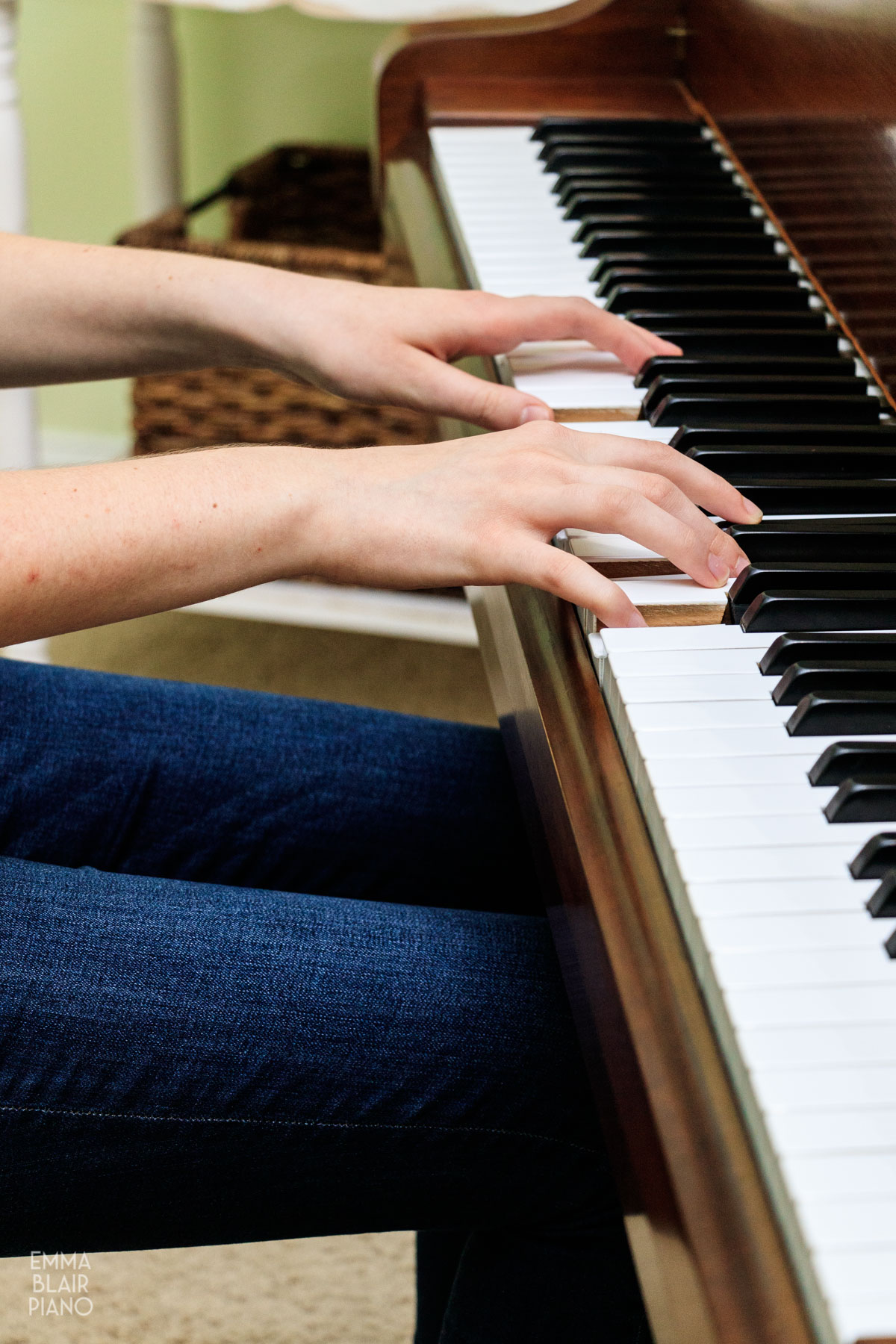
Conclusion
Do you have recommendations on finding piano technicians in your area? Or, are you a piano technician who wants to share tuning info with pianists? Let me know in the comments!
Other Piano Resources You'll Find Helpful
You must use the category slug, not a URL, in the category field.Follow Emma Blair Piano on Pinterest, Instagram, Facebook, Twitter, and YouTube!
If you enjoyed this post or found it helpful, please leave a comment below. You'll make my day!






Shammy Peterson
I found it helpful when you said that the cost of the piano tuning service would depend on the experience of a service provider. This is a nice tip for my husband because he wants to have the piano of his later father tuned next weekend. He said that he is planning to play it so he can teach our 9-year old son as well. Thanks for sharing this.
Emma
I'm glad you found it helpful, Shammy!
LARRY MONACHELLI
How long after my piano is tuned after not being tuned for almost 20 years will it take before I can play it?
Emma
I'm not sure. You'll need to contact a piano technician in your area to find out.
Olivia Smart
Thank you for explaining that you can ask music stores for recommendations for a tuner. Our piano is very out of tune, especially after our recent move. We weren't sure where to start looking, so I really appreciate your advice.